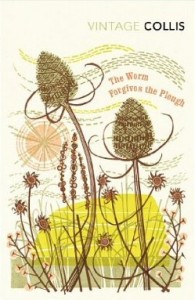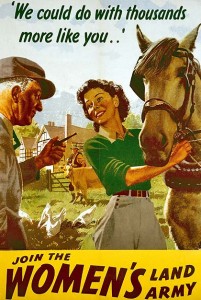You enter the wood — and you might just as well be in the Middle Ages. When I hear people speak of the Dark Ages, I remind myself how in those days the sun shone in just the same way as it does now, and the flowers glittered in woods where there was no difference from what we see today. … Inside the wood we are in the past as well as in the present.
With these thoughts, John Stewart Collis draws his book Down to Earth, now the second part of the combined volume The Worm Forgives the Plough (see my book review) to a close.
And in a way his thoughts from 1947 are still true today: nature is timeless, specially in a wood.
But in another way, the woods of 2014 are very different from those of 1947. The old practice of coppicing is all but dead: a few nature reserves struggle to practise something approaching it; enlightened landowners fell woods in patches rather than clear-felling whole landscapes, approximating the mosaic of new glades, fine old trees, brushwood, young trees and woodland edges bursting with songbirds that characterise true coppice. Often, in the old way of things, coppicing deliberately left behind a few ‘standards’ here and there, fine straight oaks or other hardwoods to grow large timbers for building ships or roof beams. Now, woods are more likely to be managed industrially for timber, or are sadly neglected with ivy on every trunk, brambles all around the forest floor.

And it gets worse. Where Collis took for granted that woods in springtime saw the primrose, then the bluebell, with here and there an orchid, our wild flowers have declined markedly for reasons to do with human interference. Visitors from the cities pick nice-looking flowers, or dig them up to plant in their gardens. Accidental introductions of deer, especially the Muntjac, graze native flowers down to nothing. Many flowers listed in field guides as common are becoming hard to find outside nature reserves.
Numbers of deer in general, including our native Roe and Fallow, are increasing (and they are spreading into the suburbs) as gamekeeping declines. Since all our large native predators like bear, wolf, lynx, wolverine have long ago been hunted to extinction, there is nothing but human hunting to control deer numbers, and current levels of hunting are insufficient. Maybe George Monbiot is right: our woods need rewilding.


